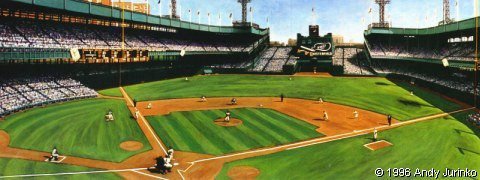MARK MCGWIRE, SAMMY SOSA, JOSE CANSECO AND OTHERS ARE TO TESTIFY TO CONGRESS ABOUT STEROIDS

New York Yankees manager Casey Stengel testifies on Capitol Hill in this July 9, 1958 black-and-white file photo before the Senate subcommittee on Monopoly and Anti-Trust hearing. Politics may be Washington's official sport, but baseball has been a congressional passion for a century. When several of baseball's biggest stars appear before a House panel Thursday, they will be following in the footsteps of some of the sport's greatest players. Hall of Famers Mickey Mantle, Ty Cobb, Jackie Robinson, Ted Williams, Stan Musial and Bob Feller all took turns before Congress, which for various reasons pays more attention to baseball than any other sport. Yankee great Mickey Mantle is at left.
(AP Photo/Files) -- Yahoo Sports
Baseball fans are split between supporting and opposing Congress getting involved in the steroids scandal. Well, baseball is not above the law. The players who take steroids are breaking the law when they use steroids. Baseball management is turning a blind eye to this illegal behavior while the sport's feats, records and recent history have been stretched beyond credulity. Some baseball fans ignorantly argue that Congress has "better things to do" than investigate the steroids issue. They seem to think that 435 Representatives and 100 senators are idly sitting by while this matter consumes the media's interest. In fact, one committee composed of several Representatives is looking into this matter while other committees are still performing their appointed assignments. Congress has not ground to a halt because of steroids. Congress is still voting and still debating on salient and important topics like social security and the war on terrorism.
The problems that certain players are facing in terms of being hauled in front of Congress, being embarrassed in public and being singled out for invasive questioning were created by Major League Baseball. MLB has done nothing since steroids distorted baseball's landscape since the 1994 strike. Steroids had a presence before the strike, but it is apparent that MLB tacitly sanctioned the use of performance enhancing drugs after the strike to boost attendance, television ratings and revenue for the clubs and players.
The only players who now have anything to worry about are those who chose to take steroids. They didn't make a mistake, they made a express decision to take a risk with their lives in order to make millions of dollars. The players who played in a clean and honest fashion have nothing to worry about when it comes to subpoenas, grand juries and drug tests.


<< Home